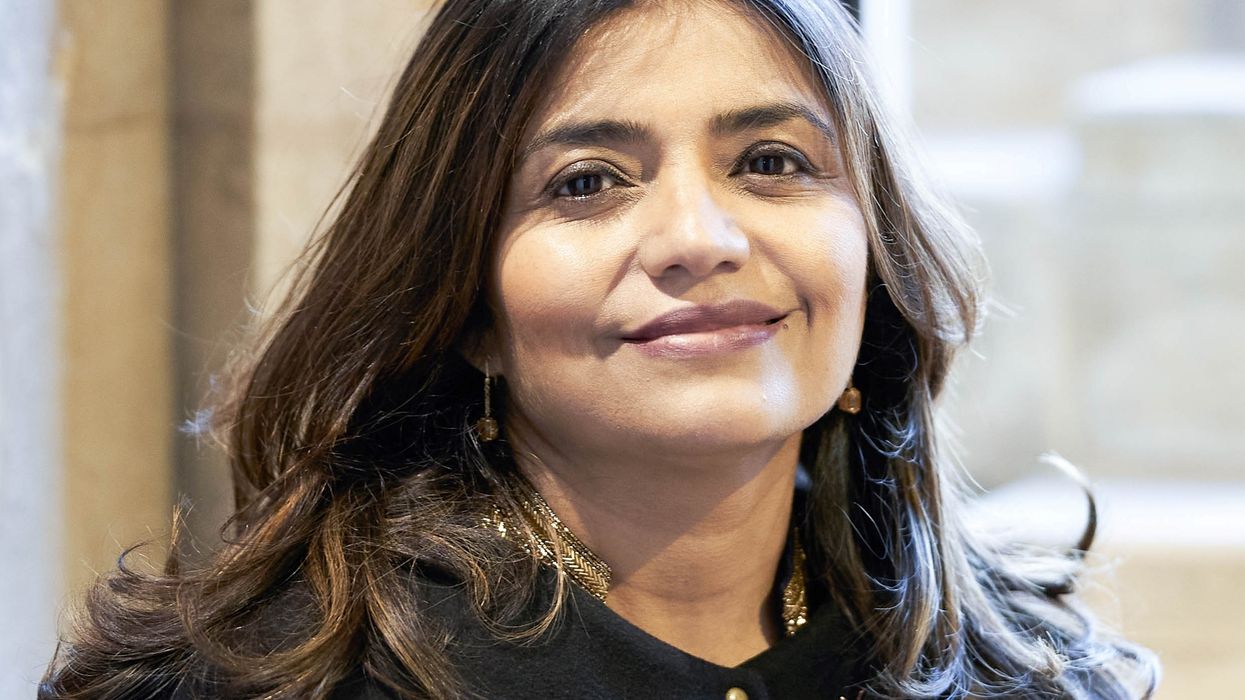THIS year’s Women In The Arts festival opens with a show headlined by acclaimed poet and ghazal singer Mehtab Malhotra at the Tara Theatre in London next Saturday (12).
The performance will include works by old and new poets, and popular ghazals originally delivered by greats like Iqbal Bano, Farida Khanum and Noor Jehan. Accompanied by talented musicians, she will also deliver rare original ghazals composed by her father Raghubir Malhotra and her teacher Ustad Iqbal Ahmed Khan, the last living exponent of the Delhi gharana. In addition, she will pay homage to her current teacher, Ustad Salamat Ali Khan of the Kirana Gharana.
This is the latest musical chapter for a versatile performer who has received blessings from late great music legends like Noor Jehan and Naushad, and performed on the last album of Ustad Nusrat Fateh Ali Khan.
Eastern Eye caught up with the artist, who is also a barrister, to discuss her close connection to ghazal, poetry and performance.
What would you say first connected you to poetry?
My father, Raghubir Malhotra, was an Urdu poet and a barrister. Our home also had the strong influence of my mother, Uma Malhotra, who was teaching English literature at university as a professor, and English poetry was a big part of her engagement with the family.
We were also surrounded by family friends who were heavily into writing and reciting poetry. This environment strongly influenced my interest in poetry.
How do you feel being part of Women In The Arts festival?
I’m delighted to be part of this festival. It is heartening that a whole festival is dedicated to women and performing arts. The unique forum is bringing forward talent and providing a platform for accomplished female artists.
What has the experience of combining poetry with music been like?
Music, if correctly composed for the particular poem, can be the most beautiful form of expression for the poetry. It is not just the beauty of the ragas I enjoy singing, but the way in which the raga is able to express the meaning and sentiment of the poem. The combination is a powerful and heady mixture.
Who is your favourite poet?
I am a fan of many poets, and particularly enjoy singing the words of Faiz Ahmed Faiz, who writes about the pain of the common man and about justice and social equality.
Why do you think those iconic Urdu poets were so great?
Perhaps because the depth of thought and content was particularly meaningful. It was also a sign of the times when this poetry emerged. They were times of hardship, formation of new nations, hope, unrequited love, greater constraints on male-female association and struggle.
What is your opinion about modern Urdu poetry and do you think it is a dying art form?
I believe poetry will always remain an art form; however, the manner and form of it may change with time. Urdu or any language for that matter is not static, and its pure form is also dynamic. So, it is inevitable that as times change, forms of expression also change and evolve.
I believe it is therefore vital to keep alive the old form of poetry, as those times are no more, and neither are the poets or the issues they wrote about.
How has poetry helped you?
Poetry has had a profound effect on my understanding and approach to life. The poetry I enjoy resonates very much with my area of practice as a barrister in human rights and family law. I have imbibed and absorbed a lot of the ethos and sentiment of the poetry I sing. I believe it has shaped my approach to people, to life, to sensitivities about the pain of others and my general sense of justice and love.
What inspires you?
Beautiful thoughts, people and physical manifestations of thoughts, art and music continue to inspire me. I continue to seek beauty in the simplest things, people and beautiful expressions through my practice as a barrister, and in my work and art as a singer.
Finally, why should we attend your show at Tara Theatre?
My event promises to embody all I believe in – beautiful music, beautiful instruments, beautiful poetry and beautiful people. I have performed over 600 solo concerts and am experienced in producing a unique sound and type of music set. It has an emphasis on poetry, a lot of which is original, and in unison with London’s top instrumentalists who, with me, will create a special sound that I am certain you will thoroughly enjoy.
www.taratheatre.com and www.sama.co.uk




